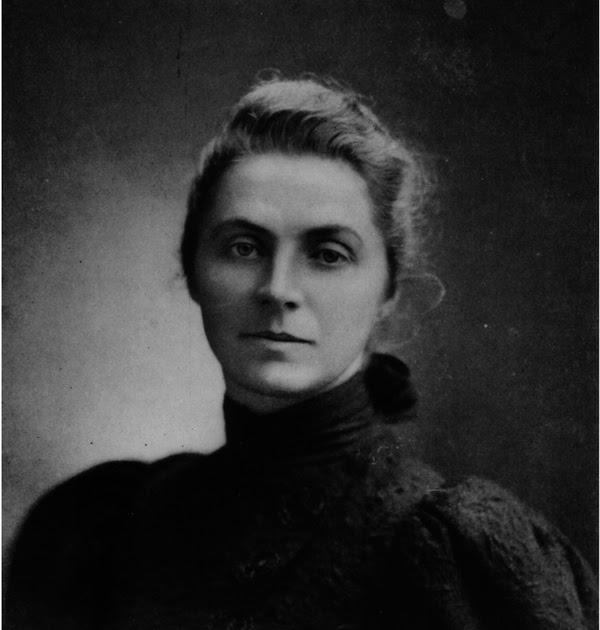OK, so who was Emily Hobhouse and why do we care? What was her role in the Boer War? What did this gal have to do with the British Empire, and why was she widely regarded (by the English) as a traitor?
Here she is:
I think she has a good face. A strong face. She certainly had a strong will--being both feminist and cultural activist, in a time where both occupations were considered as an exercise in bad taste.
Let's take a fast look at GHANDI'S (yeah, that Ghandi) obituary for this woman:
Newspapers tell us that Miss Emily Hobhouse is no more. She was one of the noblest and bravest of women. She worked without ever thinking of any reward. Here was service of humanity dedicated to God.... She loved her country and because she loved it, she could not tolerate any injustice done by it. She realized the atrocity of the Boer War. She thought that England was wholly in the wrong.... She went to South Africa and her whole soul rose against the barbarity of the concentration camps which Lord Kitchener thought were necessary if the war was to be won.
...Her life was pure as crystal. She gave herself to God's service..... [S}he had a soul that could defy the might of kings and their armies. She feared no man because she feared God....
Shall we learn a little bit more about this paragon, Dear Reader (no, i don't mean paragon in a sarcastic sense)?
She was born on April 8th, 1860, to Reginald and Caroline Hobhouse. Let's call the family's position among the lower echelons of 'high society.' I suppose you could say that she had a good childhood--filled with all the usual Victorian mores, with marriage at the end of her girlhood being the expected result. But, this was not to be. When she was about 20 her mom died. She spent the next period of her life looking after her ailing father. We're talking 15 f*&king years.
After his death, Emily had a series of --well let's call them adventures. Hearing about the labor difficulties of Cornish laborers in Minnesota (wait. Minnesota???) she went there for the purpose of providing aid for this beleaguered population. Then, she dashed off to Mexico with some guy (her fiancée), The dude turned out to be an asshole, and she somehow lost all her inheritance. Emily finally returned home in 1898, where her Uncle and Aunt provided some financial support while she continued working for various social causes. Predictably, she gravitated toward the suffragette movement, where she worked for the universal vote--all classes and all genders. She cared deeply about labor issues and subsequently served on several committees. But, perhaps most importantly, she developed into a humanitarian who viewed the English establishment in a very grim light. Sh*t, let's face it: any establishment. I'm sure you can guess, Dear Reader, that Miss Hobhouse was not viewed with favor by most staunch Victorians. You remember: "For King and Country"? Or, my favorite advice from a mother to her daughter on the wedding night: 'close your eyes, and think of England.'
In 1899, Emily was asked, by a couple of humanitarian committees, to travel to South Africa at the outbreak of the "Second" Boer War (yeab, there were two of them) so that she might report on the conditions. And, that's precisely what she did, and her observations didn't make her exactly popular with her xenophobic countrymen.
Alright, so that's a bit about Emily, but now we need to talk about the concentration camps.
It was during the Boer War that the English herded Boer men, women, and children into concentration camps. At first, the camps were meant for "refugees," These camps were established solely for the purpose of Boer families who had already surrendered to the British. At first. But, very quickly the British army changed this policy to include Boer women and children who's menfolk were fighting for the 'rebel' cause--depending on which way one looks at it, I suppose. After this, these camps were turned into concentration camps. Conditions were so bad that eventually (and roughly) over 26% of the prisoners died. But, it was Emily Hobhouse, who'd been sent to report on the status of living in the camps (for several English charities), who provided the reality of camp life for Boer families.
Emily arrived at Bloemfontein, along with necessary supplies for the Boer women and children. She was only allowed by Kitchener, to visit where she saw "the semi-starvation in the camp..... the fever stricken children lying sick unto death upon the bare earth, the diseases....the appalling mortality, the attitude of sub-officials and the disastrous affect of all upon the colonial mind." https://blogs.bl.uk/untoldlives/2019/01/methods-of-barbarism-how-emily-hobhouse-exposed-the-humanitarian-crisis-of-the-boer-war.html
There must be two Americas: one that sets the captive free, and one that takes a once-captive's new freedom away from him, and picks a quarrel with him with nothing to found it on; then kills him to get his land. . .
True, we have crushed a deceived and confiding people; we have turned against the weak and the friendless who trusted us; we have stamped out a just and intelligent and well-ordered republic; we have stabbed an ally in the back and slapped the face of a guest; we have bought a Shadow from an enemy that hadn't it to sell; we have robbed a trusting friend of his land and his liberty; we have invited clean young men to shoulder a discredited musket and do bandit's work under a flag which bandits have been accustomed to fear, not to follow; we have debauched America's honor and blackened her face before the world. . .
And as for a flag for the Philippine Province, it is easily managed. We can have a special one--our States do it: we can have just our usual flag, with the white stripes painted black and the stars replaced by the skull and cross-bones.
https://guides.loc.gov/world-of-1898/mark-twain#:~:text=We%20have%20gone%20there%20to,talons%20on%20any%20other%20land.

